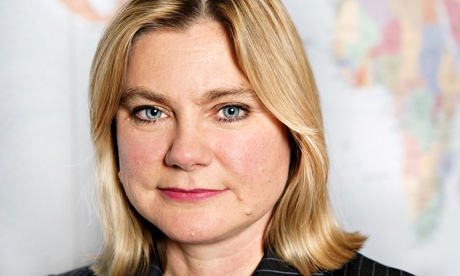Britain is to take the lead in tackling the rise in the number of Syrian refugee girls below the age of 16 forced into early marriage by destitute parents, many of whom believe it provides the best hope of protection against sexual violence.
David Cameron is to host a Girls’ Summit after figures from Unicef showed one in five Syrian refugee girls, some as young as nine, are being forced to marry early after the intensification of the conflict, compared with one in eight a year ago.
Justine Greening, the international development secretary, said Britain would ask its international partners for financial help to provide “safe spaces” for women and girls who have suffered sexual abuse. As a first step, the government is to provide £6m to Doctors of the World, as part of a £36m package for Syria, to help the charity to provide specialist care for victims of sexual and gender-based violence.
Greening said: “We need to directly support the girls and families by providing safe spaces for women and girls, making sure that for those who are suffering sexual violence and abuse that they are getting support and medical attention.”
In a Guardian interview to mark the third anniversary of the Syrian conflict, Greening said many girls never see their family again after they are married.
The international development secretary, who has just returned from the UN in New York, where she has been laying the groundwork for the summit in London, said: “One of the unwritten stories of the Syrian crisis is the impact it has had on young and adolescent girls, many of whom have been married off often for economic reasons. Today 20% of Syrian girls are now married by the time they reach the age of 16 which is a shocking statistic.
“Many of them are married to men that they have no knowledge of at all, who may literally be turning up to find a bride. That may be the last they see of their family – they are often taken entirely away from their family, away from the camp, even out of Lebanon or Jordan. It is a terrible situation.”
Greening said economic pressures mainly explained the early forced marriages. “It is very hard for Syrian refugee men to get jobs. So they have resorted to various ways to try and manage their family circumstances. The prospect of being able to get a so-called ‘bride price’ for your daughter whilst also reducing the number of mouths you have to feed in your family by one – for many families it is an almost impossible choice they face but it is one they face. It is awful. It is a terrible, terrible situation these girls find themselves in. It is bad enough as a child being affected by the refugee crisis in Syria, it is bad enough being out of school. But to lose not only your education but the chance for education in the future, the chance for an employment opportunity is a horrible, horrible fate for these girls.”
Britain will use the summit to encourage partners to cut the economic incentive for the marriages by funding programmes to provide skills for jobless male refugees. She said: “It means stepping up the work we are all doing on livelihoods so we provide more ability for people in these camps to be able to earn a paid living. There is quite a vibrant economy in the camps but we need to use more of the skills the refugees have in vocational areas, like plumbing or carpentry, to provide more vocational education for young boys who are at risk of radicalisation if we don’t find more compelling opportunities for them.”
A link to the article can be found here.

